This is how a book written by the ‘generative journalism” account/“knowledge service in an infodemic” I contribute to would start. I believe that’s called BLUF: bottom line, up front.
What would the first sentence of YOUR book on 2020 be?
Wearing my ‘serial founder exploring starting a company’ hat, I advanced my passion project KIP3.
KIP is a seven-year long passion project to tackle the disinformation problem on social media that makes us poor information citizens and polarized neighbors who cannot take collective action in the face of threats like the climate crisis.
It’s a Wikipedia + Wordle for Current Affairs to make better citizens and voters…A comprehensive project that aims to promote trust and transparency in democracy while combating disinformation and corruption.The deliverables can be used individually or collectively to empower citizens with the knowledge and tools needed to critically evaluate information and build a network of trustworthy sources.“We are at war but most Americans don’t realize it and even fewer know the American president was installed to destroy us.” #fridaymorning #quoteoftheday #TrumpFailedAmerica #TRUMPDestroyedAMERICA #BookBoost #amwriting #Election2020 #VoteForOurLives pic.twitter.com/STOHuisOnF
— Trust is a license. Renew it. (@actuallyreal33) July 17, 2020

This is how a book written by the ‘generative journalism” account/“knowledge service in an infodemic” I contribute to would start. I believe that’s called BLUF: bottom line, up front.
What would the first sentence of YOUR book on 2020 be?
Our bookshelf of tomes about this dark chapter in American political history keeps growing…
“Age Of Lies. Rigged. Cold War. Hot Peace. Dirty Money. Unfreedom. Shadow State. Red Notice. Stable Genius. Untold Story. Putin’s People. Crime In Progress. Secret Meetings. Dark Towers. Trail Of Destruction. Age of Trump.”
We’ll keep adding to it until this chapter of history is fully written & in the dustbin.
Here’s to the heroes among us who are going to bring us through.
“I saw the coronavirus coming in January”
I saw the coronavirus coming in January and have been tracking the pandemic ever since. It’s been uniquely disturbing to see a mysterious wave of illness and death surging toward us, with far too many people refusing to face it.

~ Andrew M. Slavitt (former Acting Administrator of the Centers for Medicare and Medicaid Services)
“A wave of illness and death is surging toward us with far too many people refusing to face it”
I’d been looking to see which flus were coming out of China as my family members and business associates were heading to CES in Las Vegas in mid January. I wanted to know which bugs they might be dealing with at the massive consumer electronics trade show.
I’ve been highlighting points made on Twitter by various sources about the COVID-19 pandemic — and the antivax movement, which as it happens will be even more destructive a force in society with this true-blue no-vaccine killer virus on the loose.
So I found the pandemic in January. In February I found the general response we’d need to preserve our medical system and suppress the spread of the virus.
I'd discovered the below graph of Philadelphia vs. St. Louis deaths from the Spanish Flu, showing how social isolation helped depress the infections and deaths in one town while the other’s lax policy resulted in a spike of unnecessary deaths.
It was great to see a Bloomberg deep dive on the same example when it came out a few weeks later, and the term “flatten the curve” make its way into public health communications on COVID.

Collecting resources for all in March
Click through to reach my list.
I also follow these COVID lists, click on their names to see: Kim Mai-Cutler and Brian Koppelman.
I started a Twitter list of COVID-19 expert sources in early March.
It seemed especially important to gather my own science and public safety sources (and follow other lists compiled by early pandemic watchers) at a time when the president and far too many government leaders were ignoring or downplaying the disastrous and monumental impact of this virus on the planet’s human population. The disinformation campaign against early effective action will go down in history as a genocide.
“People said “I don’t need that leaflet - I don’t live here.”
That’s ok, viruses love to travel! ”
In early March I was activated by the Fire Department as an emergency response worker for disaster preparedness. SF had declared a health emergency the prior week. The activation meant passing out coronavirus health department leaflets downtown (wash your hands, don’t touch your face [impossible for humans I believe], elbow cough, make plans).
Handing out public health COVID preparation leaflets on that busy Financial District street corner was brutal. People didn’t want to hear it.
Some people laughed, some people said no!, some people said “I don’t need that - I don’t live here.” I thought, That’s ok, viruses love to travel! A handful were grateful and said “hey thanks for doing this.” They knew we’re all in it together and with 2 community transmission cases in SF that very day, the virus was already here, and also waiting in a cruise ship off the Golden Gate.
To be continued…
“If you can’t follow what’s happening, you can’t adequately think or act in this crucial moment.”

Trump impeachment rally - San Francisco Federal Building 12/2019. Image by me.
Today’s info war sure is info hell, isn’t it? The United Nations is calling it an “infodemic”.
When I talk to people — intelligent people, educated people, media and news professionals, tuned in people, random people — pretty much when I talk to everyone, they don’t know at all what I know.
Or they know a lot less, or they admit they get their news from “CNN…and FoxNews, for balance”, or they simply aren’t trying to follow the firehose of info flying at us these days.
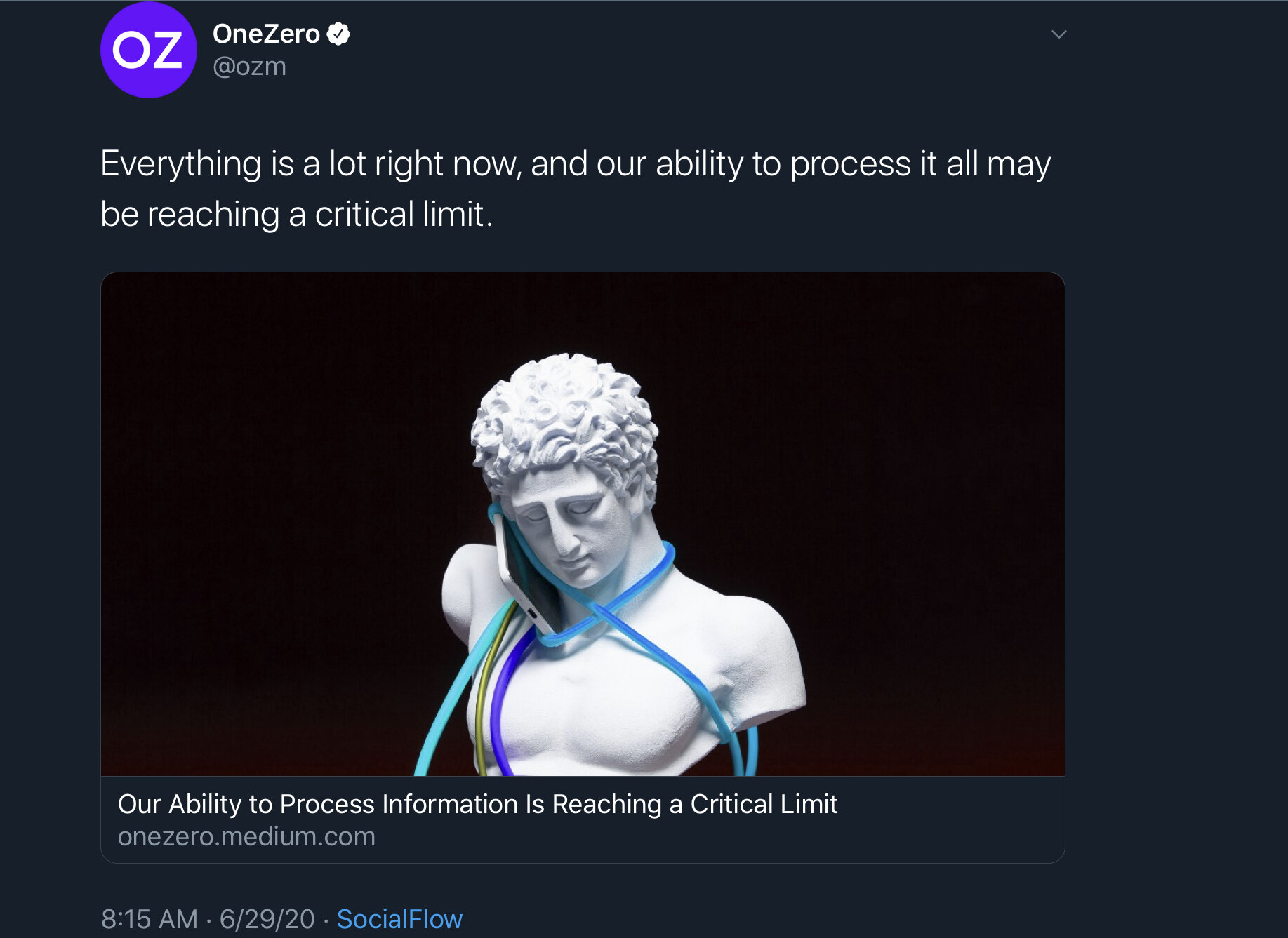
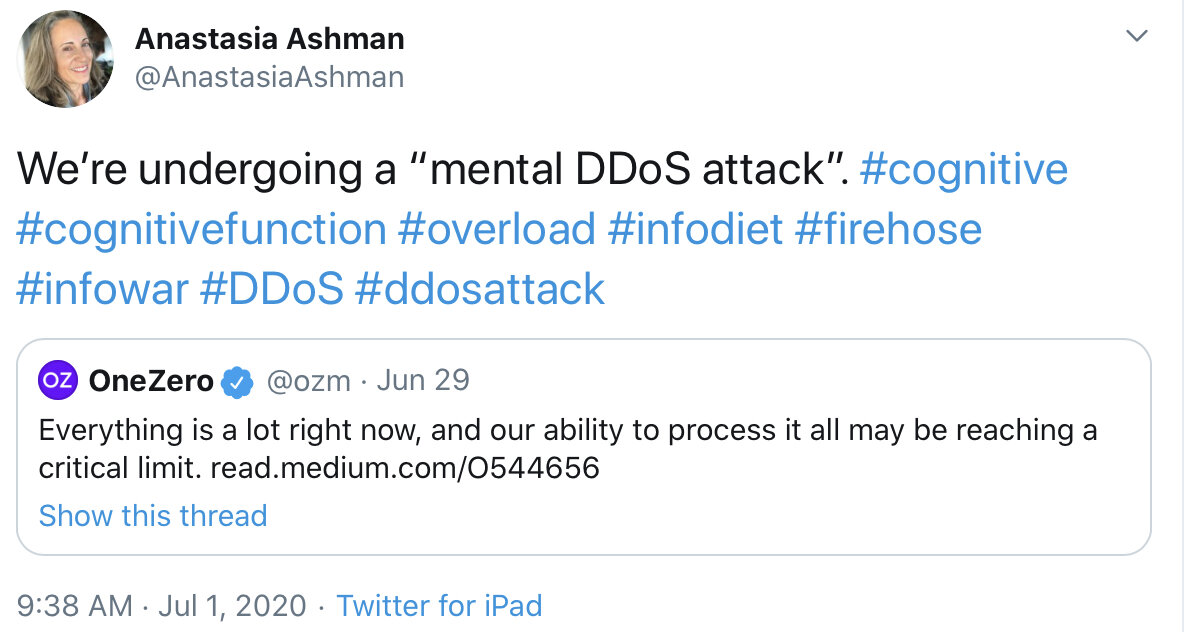
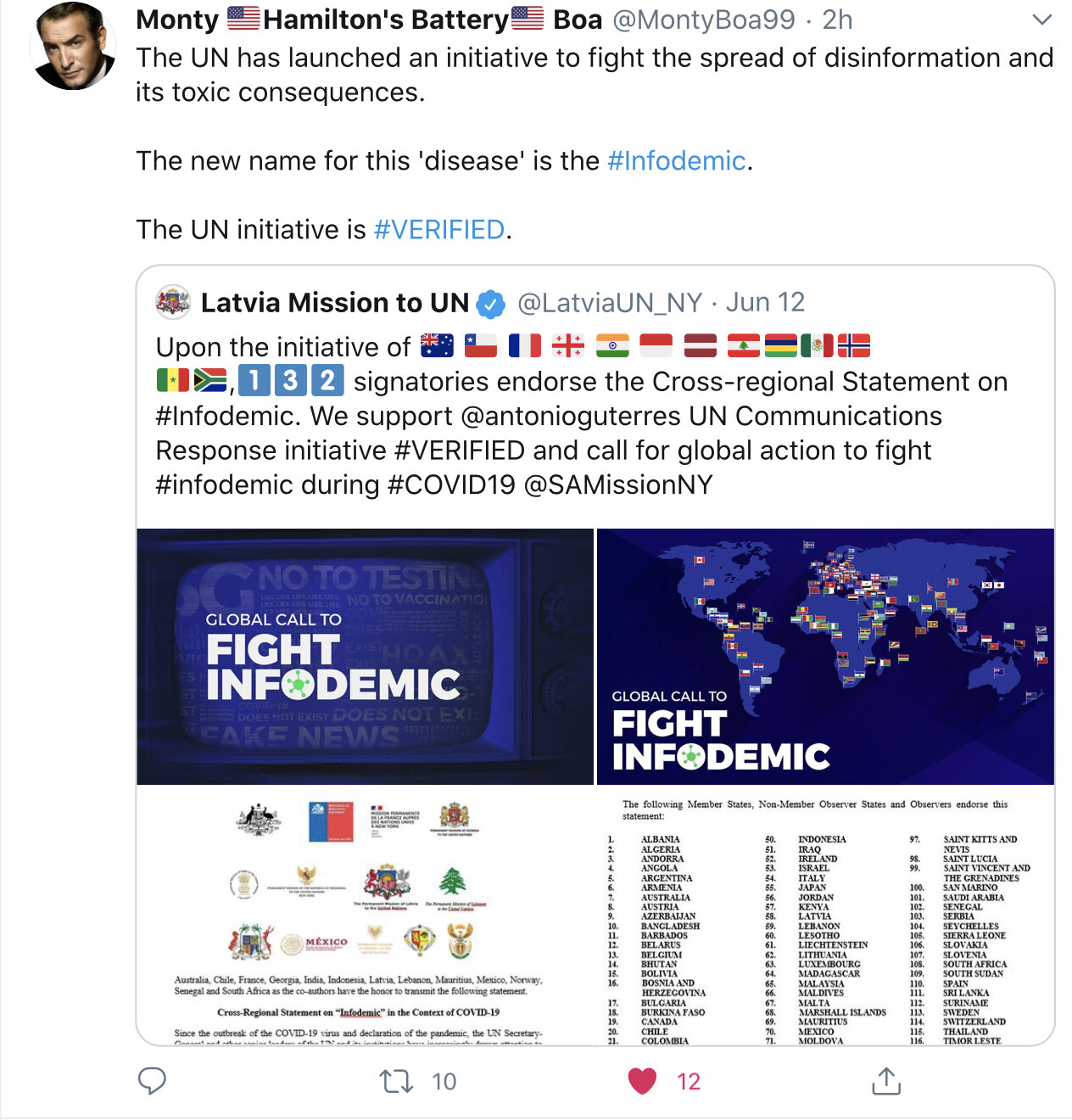

The enemy is noise, the goal is clarity.
~ Jon Stewart told the New York Times this week
Most people I talk to are clinging to an outdated and irrelevant opinion or worldview like it’s a life raft.
This is a problem.
An information diet that doesn’t serve you is COSTLY
during a pandemic that requires us to reenvision how we live;
in an Election Year;
when Western Liberal Democracy is under attack both domestic and foreign, with a main weapon being military-grade psy op disinformation and propaganda directed at a civilian population.
If people can’t follow what’s happening or learn the historical basis of what’s happening or perceive the machinations of global alliances and systems including the largest law enforcement action against organized crime that the world has ever seen, they can’t adequately think and act in this moment.
It’s a costly problem that can be solved, as Jon Stewart points out, by clarity.
“For more than a decade I’ve been following sources & stories that are coming together now. I want you to see what I see.”
I’m an info hound as you know. I’ve been curating speciality lists of expert sources on Twitter for more than a decade, and relying on them almost exclusively for my news gathering needs through the Arab Spring and the Gezi Park Protests in Turkey. The list of 1,000 sources I mention in this post was meant to be my lens on American politics and current affairs for the 2016 Presidential Election.
I’ve been following stories that are all coming together now. And I’m working to share that with you. So you can see what I see.

See a few news stories a day…
Subscribe to a daily Trust Is A License Nuzzle newsletter with just a few of the top news stories shared from 1,000 curated sources
At its core the project is a Twitter account run by a small group of diverse centrists who see all sides of global and societal threats and want to ensure our fact-based perspective gets voice and distribution in this age of extreme disinformation campaigns.
We’re also exploring a variety of other ways to connect, present, and share this vital and contextual information that only become more relevant with each passing day. We all need to know this. It’s our history. More on that soon.
One of our readers has described us as civil service journalism. “What you’re doing is generative journalism. It’s a community service to inform citizens at a time when the Fourth Estate is dying and under attack, and news media has devolved into propaganda machines.”
“We vet content & sources, metabolize info & amplify points to help you understand this moment in time. ”
As the mainstream media failure became clear, citizen researchers and curators like me picked up the slack. At Knowledge Is Power, our focus has been on vetting the content and sources, metabolizing the information, and finding ways to underline and amplify clear points we believe are valuable to cutting through the noise and understanding this moment in time.
We hope to connect the dots for ourselves and others. We started doing this for OURSELVES. Yet, it’s for others. Without any marketing the account’s organic reach has grown 160x in its first year.
By vetting and amplifying the work of citizen researchers, whistleblowers, journalists, social justice workers, national security experts and more, we aim to strengthen democracy and stop the playing-the-extremes-so-nothing-gets-done horseshoe that divides us.
“Our mission is to help with what comes next: when we dig out from the damage, there will be a massive need to educate people about what just happened.
”
As people begin to dig out from the damage of the cyber war/information war/total kinetic war against Western Liberal Democracy (including Trump & transnational organized crime) that we are currently experiencing in America and throughout the world, there’s going be a need for a massive education of the American people about what just happened. Hollywood is already telling these stories. We want to help with that.

…or get everything we share
Follow the Trust Is A License Twitter feed to see who & what we’re highlighting & what discussions we’re a part of.
Scan some recent tweets.
Scan some top tweets.
Or subscribe to our Substack newsletter (which we may start publishing on soon!):
SXSW 2019 named us a top-10 cutting edge company this spring. Now come see our direct-to-consumer mobile streaming platform like no other at the early adopter emporium Product Hunt today, watch our movies for free, and tell us what you think.
Will you be at Digital Hollywood's Creativity Festival next week in Los Angeles? As 10 Block’s cofounder I will be speaking on a panel at the Women's Summit about content -- from film/TV, internet video and influencer campaigns to games -- Wednesday at 12:30.

In January I took a cofounder & COO role in Second Screen, a mobile startup in LA's Silicon Beach that aims to become the Netflix of bite-size series. Europe's magazine for the media & entertainment industry interviewed us for their May issue when they took a look at the adoption of second screen technology and other rapidly growing areas of mobile content.
Today they made the Second Screen app their cover star. Thanks to TVB editor Jenny Priestley for the interview of Second Screen's founder & CEO Estella Gabriel.

"Wouldn't the clever idea be to create an app where viewers can watch content but also comment about it?" asks TVB Europe's editor in her note prefacing the magazine.
Estella talks about social discovery: "Instead of an algorithm like Netflix has, we use a referral system. You can see what your friends are watching."
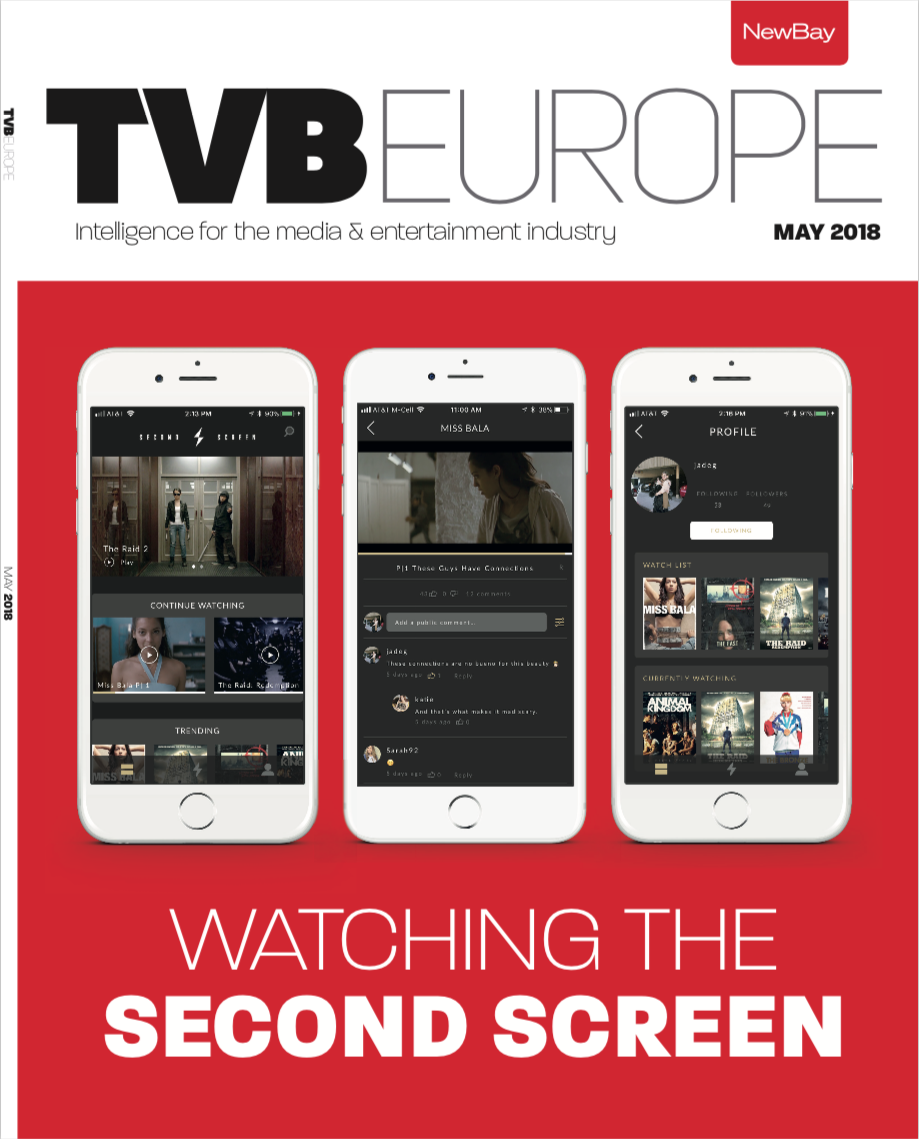


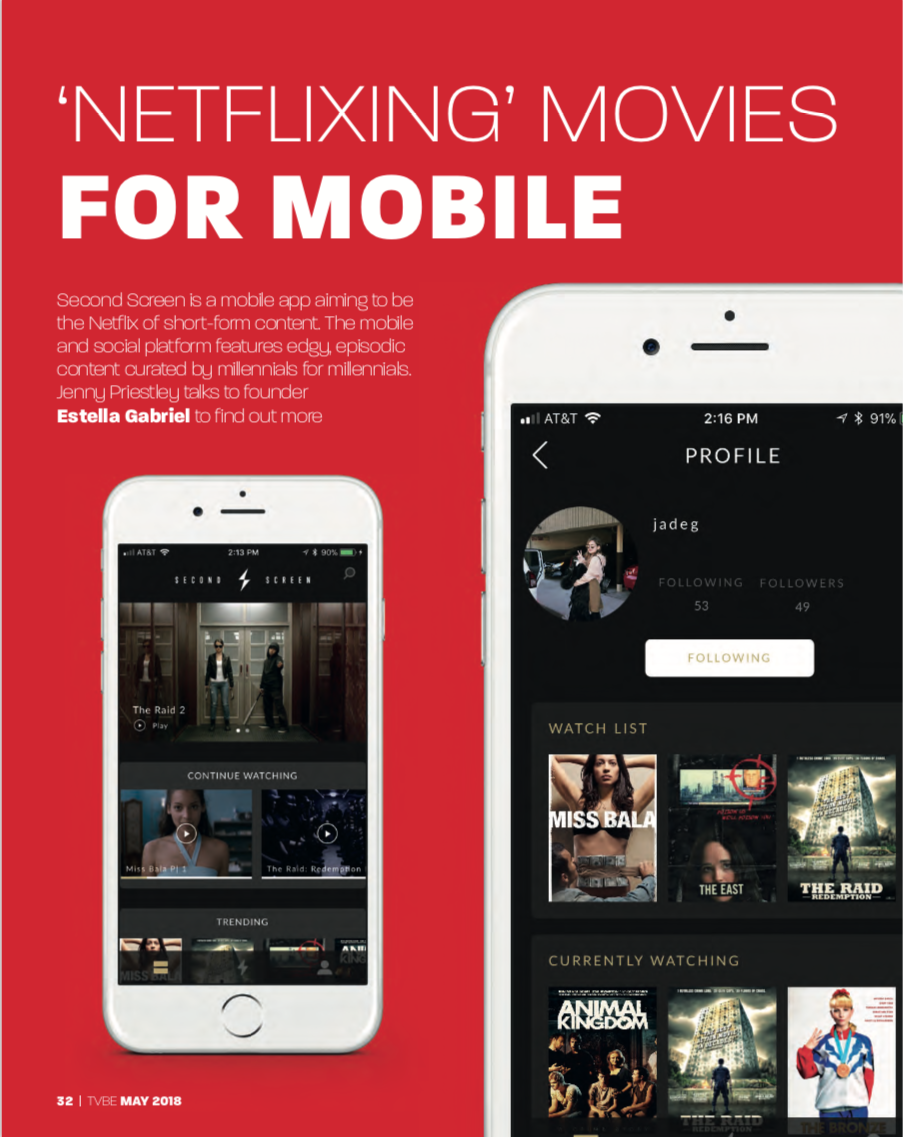
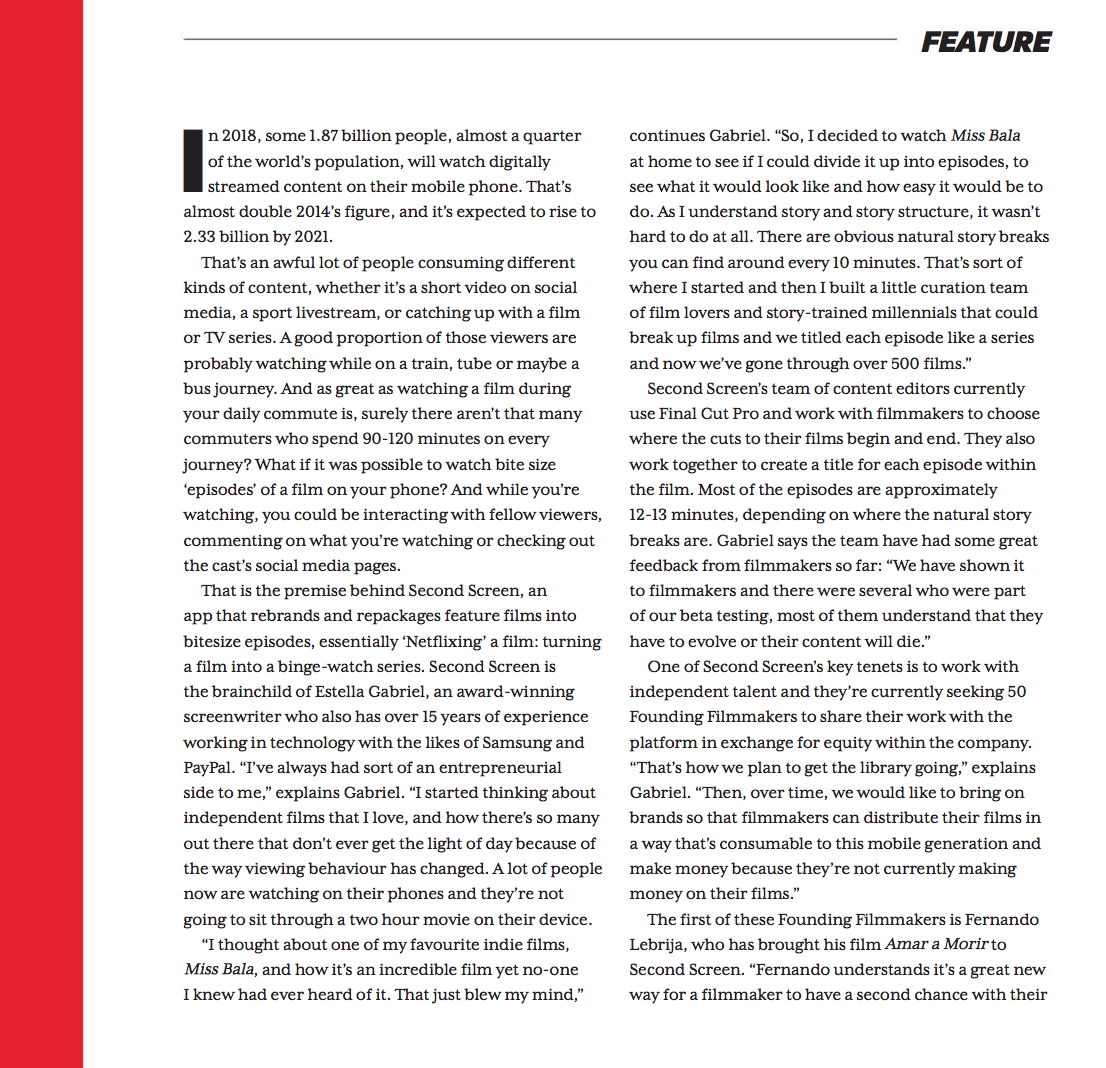
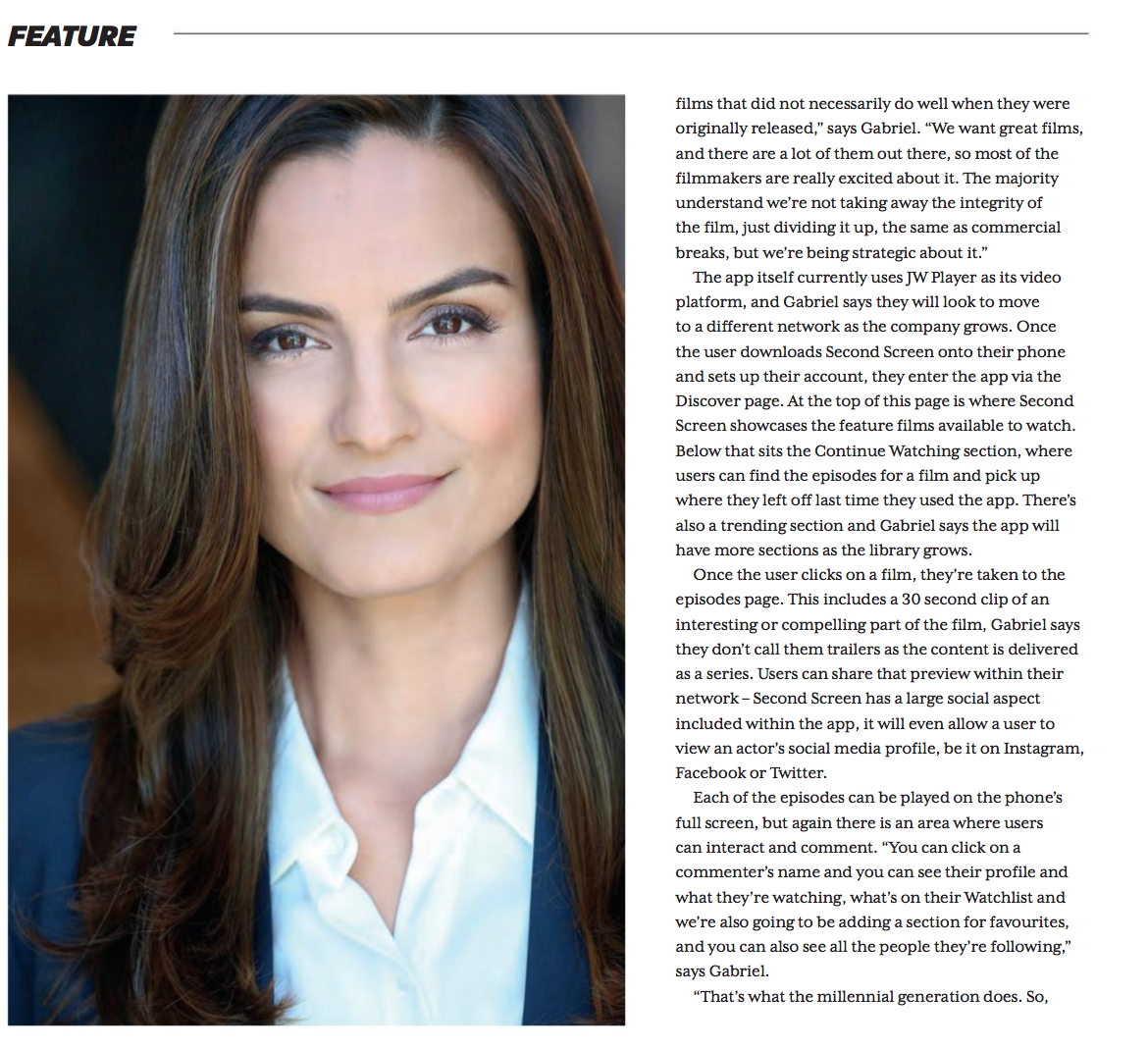
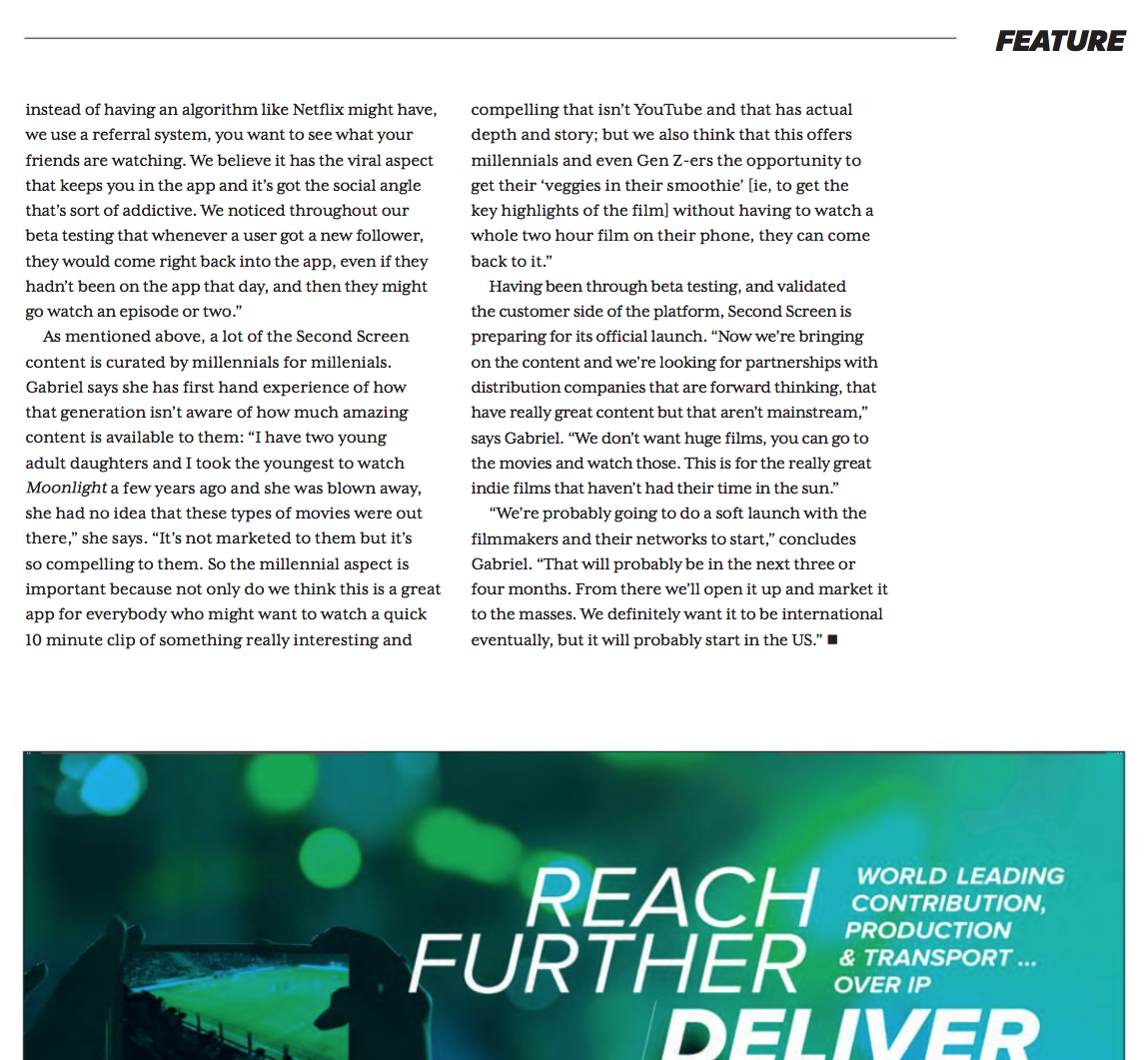
You can read the whole issue here.